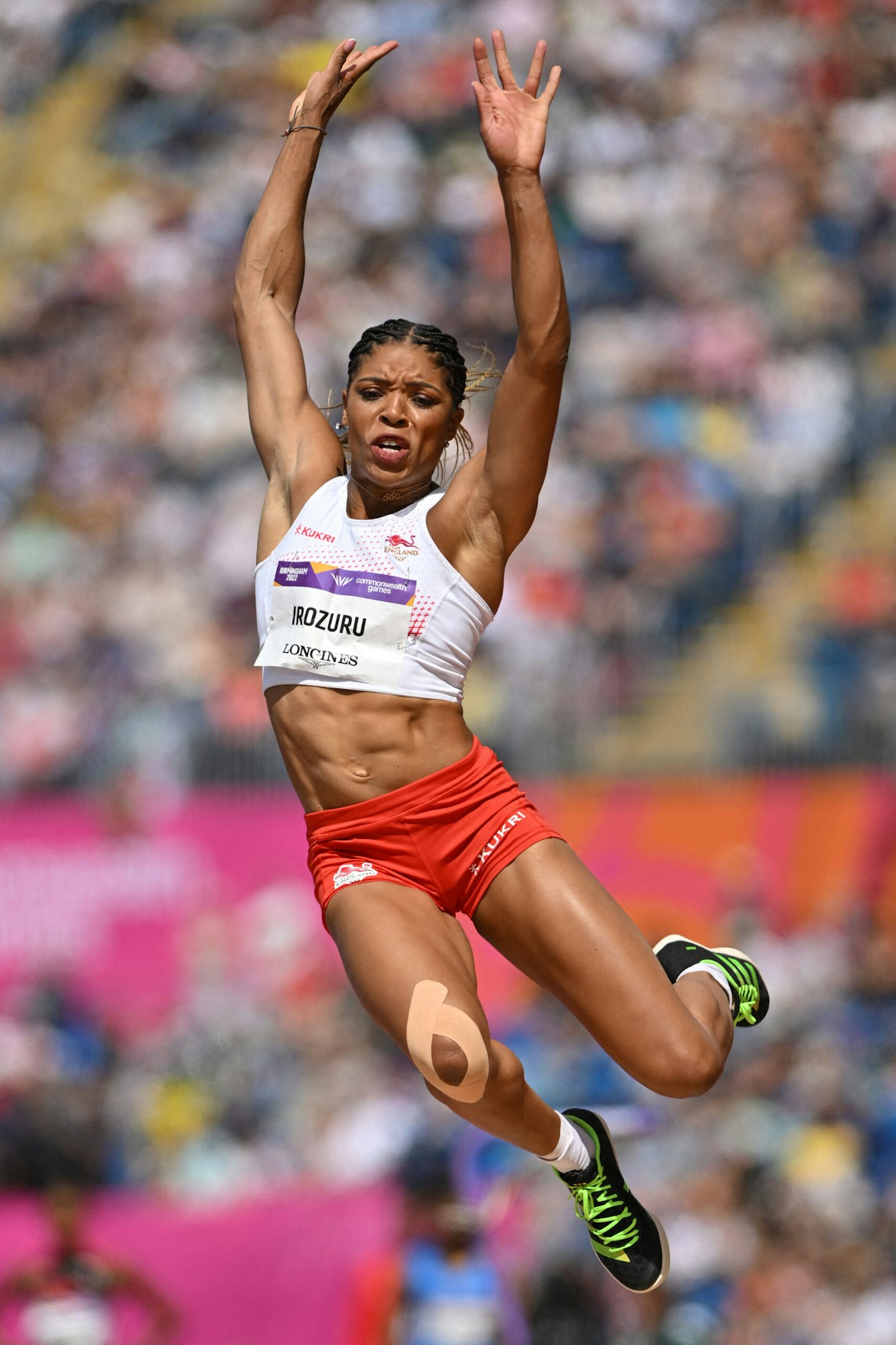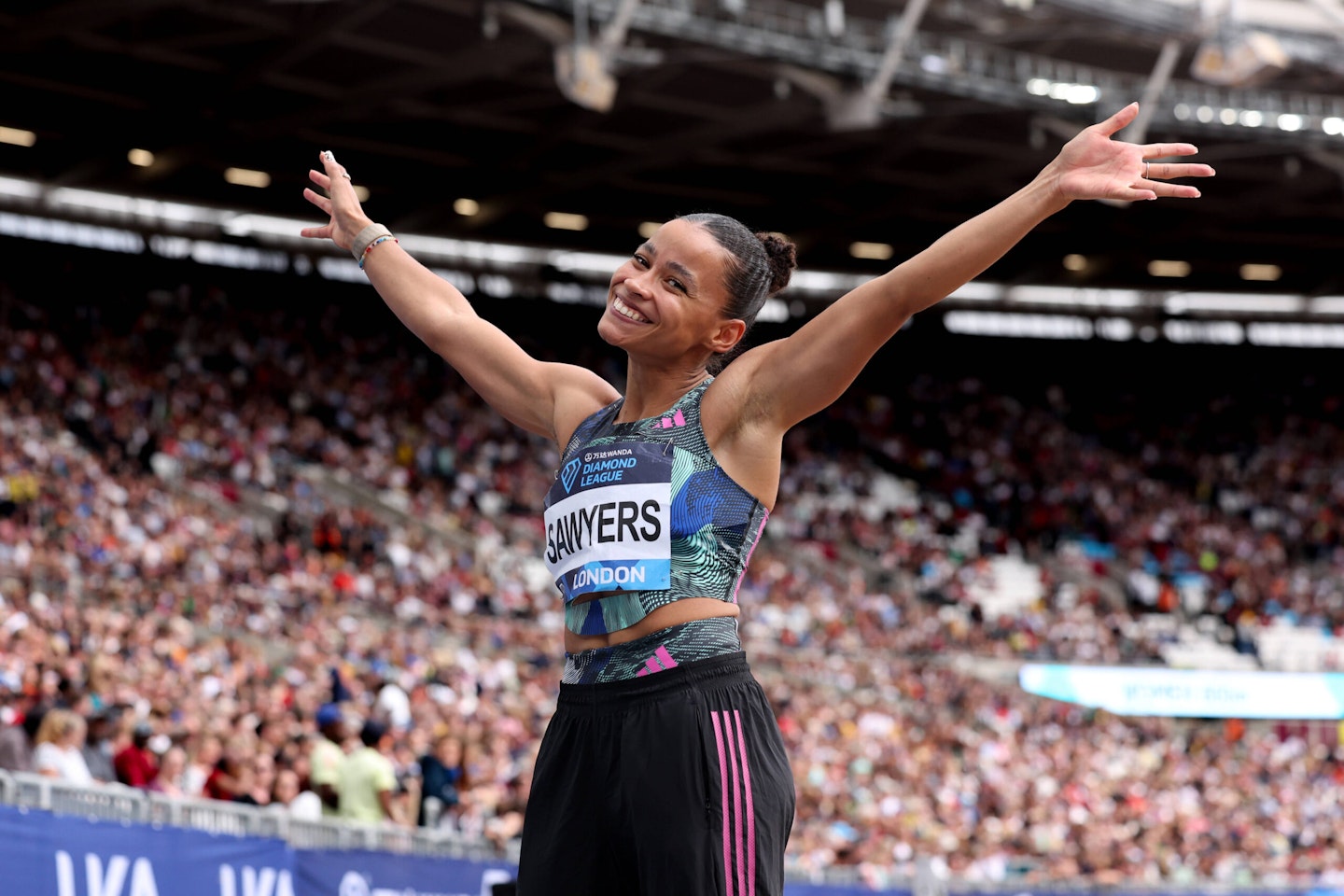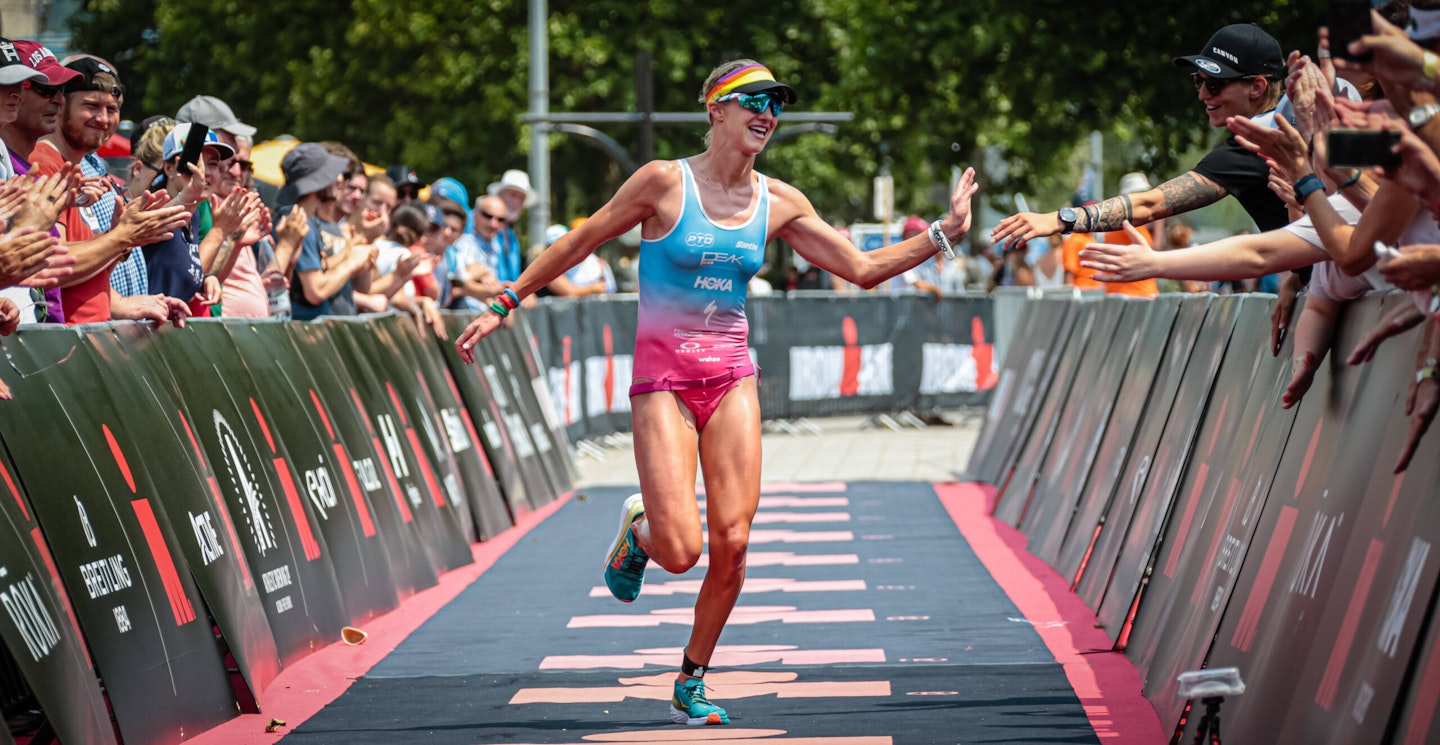Picture the scenario; you’re at work when you feel that familiar dull ache deep down in your abdomen; the one where your uterus feels like it’s been marinated in Gatorade for a week before being pummelled by tiny but persistent wooden pestles. Fearing the imminent thwack of period blood, you carry out a mental risk assessment of your current outfit and its suitability to withstand potential leaks.
Now picture that ‘work’ is in fact an Olympic stadium and your work outfit is a pair of teeny, tiny – let’s make them white for good measure - pants and you are pushing your body to the very brink of its physical and mental capabilities. Oh, and you’re also being watched by 29 million people scrutinising your every move.
It may sound like the stuff of – extreme - anxiety dreams but competing (in said teeny tiny pants/leotards and swimwear) whilst menstruating is the monthly reality for many of our top female athletes who also happen to casually scoop up medals along the way.
There’s undoubtedly been a more open dialogue about menstruation in recent years and most of us have grown up being told that periods shouldn’t stop us getting on with our everyday lives even if it’s by way of tampon adverts of women frolicking on roller skates or jumping out of aeroplanes, but the reality is that in a world where we still feel the need to hide tampons up our sleeves in the toilet queue, the subject of periods in competitive sport continues to be relatively taboo. Some rather depressing new research from menstrual hygiene brand Always has shown that 2 in 3 women and girls believe that being on their period puts them at a competitive disadvantage in sport, whilst Puma’s collab with period underwear brand Modibodi last year revealed that 1 in 2 teens are skipping sport because of their period.
Unsurprisingly it’s a subject that is never far from the thoughts of Olympians such as Jazmin Sawyers and Abigail Irozuru.
'I always think back to a conversation I had with a paralympian at least 12 months before the Tokyo Games started,' says Irozuru, a Team GB long jump athlete who regularly advocates for better equality within professional sport. 'She was tracking her cycle on an app and had just realised that her period would be due during the Olympics a year down the line and was already worrying about what she was going to do. It goes to show that not only do we think about our periods on the days we have them, we’re thinking about how they’re going to affect us in the future especially when competing on the biggest stage of our life.'

It’s something fellow long jumper Sawyers who also competed in the 2020 Tokyo Olympics and won a silver medal for England in the 2014 Commonwealth games agrees with. 'My periods have been an issue from the outset as when I first started getting involved in sports I had very painful periods. It definitely contributed to anxiety about competition and I would get panicked not only about when they were going to come and if I would be in pain but also whether it was going to affect my performance as the messaging was predominately that I wouldn’t perform as well if I competed on my period. It became a very real worry.'

At the most basic, superficial level is the concern about leaks, which thanks to strict dress codes, puts the burden of avoiding any indication that the athlete is menstruating firmly on the athlete. Most of us have felt some degree of period mortification at some point in our menstruating lives but something that should draw solidarity can often lead to bullying and criticism. Something which triathlete Emma Pallant-Browne discovered after a photo of her competing with a small bloodstain on her swimsuit went viral.

'I’m lucky in that I generally don’t have heavy bleeds but I do know there are other athletes who feel very self-conscious,' says Irozuru. 'They’re often wearing multiple pads when they’re competing and I can’t even imagine how uncomfortable it must be for a swimmer who experiences heavy periods. Even if it doesn’t affect you performance-wise, you’re inevitably going to be thinking ‘is the tampon showing?’, ‘am I leaking?’ it would be difficult to completely zone out those thoughts.'
But as many of us will attest it’s not just a matter of blood to contend with; it’s the fatigue, mood-swings, bloating and whole host of other curveballs our bodies throw at us when our period rolls in that we wouldn’t willingly invite to be our gym buddies. Not to mention the physiological changes that make female athletes more prone to certain injuries at different times in their cycles. The still “taboo” subject is vastly mis-understood and something Dina Asher-Smith has called for more research into after her cycle caused her to pull up with cramp at Munich 2022.
Whilst menstrual tracking is an important part of women’s sport to help female athletes get the best out of their bodies and maximise their performance by modifying sleep, nutrition and recovery, it’s only part of the issue. Research shows that there is more to be done to tackle the inherent belief that periods are a hindrance to sporting ability, something Sawyers who has partnered with the Master Your Menstrual Cycle Programme feels passionately about:
'I would love for period anxiety to become obsolete. I wish I’d had resources and information about the different phases of my menstrual cycle when I was starting out as it would have saved a lot of worry. I personally feel stronger on my period and was lucky in that I got my period just as I was about to be called out onto the track for my first big competition which I ended up winning so it instantly stamped out the idea that I would perform less well. I joke that my period has FOMO as I’ve since been on my period at every major championship I’ve ever taken part in – I think it’s something to do with a high stress situation - but I love telling that to young girls as you can see the shift in their eyes when they look at videos of me on youtube competing and knowing that I had my period in every one of those videos. I think that’s a really important thing for girls to grow up knowing rather than having to learn that when they’re older and the messaging’s already ingrained.'
As Irozuru points out, it’s also something that male coaches need to acknowledge. 'It’s such an important statistic to be addressed and challenged so girls need to feel comfortable to speak openly with their coaches whether male or female as it’s honest conversations that will help to drive change.'
How to period like an Olympian
You could argue that everyone who bleeds monthly are olympians but for most of us, the reality is at worst a race between speed and gravity when stepping out of the shower rather than trying to scale a pole or jump 7 metres. Nonetheless, whilst their regimes may be extreme, there is something to be learnt from our Olympian counterparts when it comes to how to exercise (or simply navigate life) whilst on our period.
So get ready to backstroke, sprint and vault your way through your cycle – teeny, tiny pants optional.
Knowledge Is Power:
'I think a shift in mindset is needed so that women realise that being on your period isn’t necessarily a disadvantage – it’s just that you’re stronger in certain things at different points in your cycle,” says Sawyers. “Once you know your cycle you can use that to your advantage and prepare for what’s coming.'
'For me it’s been about really getting to know my body and tracking my symptoms religiously in an app,” says Irozuru. “I use Samsung Health as I’ve found it easy to track how I feel but there are so many out there it’s about finding one that you like to use.'
Get Moving:
'As an athlete you can’t just skip training but what I’ve learnt from that us that any movement during your period helps,” says Sawyers. “There’s definitely the inclination to lie on the sofa and eat chocolate but encouraging yourself to move your body really does help you feel better. You don’t have to throw 80 kilos above your head in the gym like I do, just going for a gentle walk as cliched as it sounds will make a difference – you can take the chocolate bar with you.'
Hydration Station
Part of managing symptoms like bloating and cramps comes with knowing your cycle,” says Sawyers. “I’ve learnt that if I’m better hydrated my cramps aren’t nearly as bad, but you have to get ahead of them as it’s no good downing 2 litres of water when the cramps start – it’s something you need to keep on top of all month. Obviously for some people cramps aren’t about the current water state in your body but if it can’t be solved with drinking and sleeping more and eating better you should be seeking medical advice first.
Sleep Easy:
'Get more sleep sounds like such a basic rule but I know that I have more trouble sleeping when my period’s about to start so I make a conscious effort to have a really good bedtime routine in those three days before my period is due,” says Sawyers. “Again, I can only do that because I know it’s coming because of all the tracking but it means I can consciously go to bed 45 minutes to an hour earlier so I make sure I’m at least not losing sleep.'
Avoid Injury
'I often found there was a period of time around my cycle that I would often get little niggles or injuries and being able to adjust my training load around that in terms of volume or intensity allowed me to reduce my rate of injury,' says Irozuru, something mirrored by Sawyer. 'For so long before I was tracking, I thought I was getting injured once a month when
actually it was just premenstrual symptoms; your body just feels different but once you start keeping track you understand why.'
Curb The Cravings
'I’ve learnt enough about my body to know why I’m craving certain foods at certain points in the month but sometimes you need to join the dots,” says Irozuru. “I remember craving chocolate every month and it wasn’t until I spoke to my nutritionist that I realised it was because I was lacking in magnesium. It’s about knowing why you’re having cravings and not necessarily leaning into them as there’s usually always a healthier option.'
Cut Yourself Some Slack
'As an athlete you usually override the difficult moments during your cycle especially the more emotional ones as it’s all about getting the training done but some days you just have to allow yourself a moment and either adjust the training or if you really need to sleep it off or cry it out,” says Irozuru. “We may be Olympians but we’re still human.'
